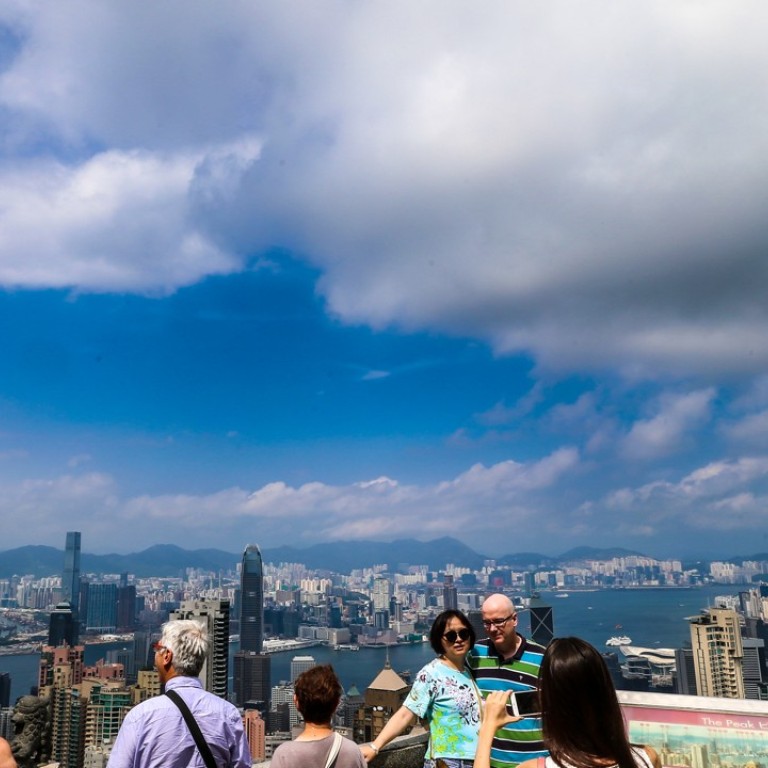
Letters to the Editor, May 15, 2017
High prices hitting city’s tourism sector
In March, the Economist Intelligence Unit dubbed Hong Kong the world’s second-most expensive city, behind Singapore.
This is a cause for concern, because the surging prices of goods and services are having a negative impact on our lives and could harm Hong Kong.
The EIU’s survey found that basic essentials, such as bread and petrol, are more expensive than in other developed cities such as New York. How are we all supposed to afford these exorbitant prices? The high cost of living forces people to work harder just to try to maintain their standard of living and it is not easy.
Many tourists will be put off if it is too costly to come here. This has contributed to the stagnation of the tourism sector which is serious, given that it is one of the pillars of the economy.
Potential visitors who fear they will have to pay unreasonable prices for goods and services will go elsewhere, perhaps to cities on the mainland.
People do think about costs when choosing their holiday destination. Tourism development has already been hit by these high prices.
The government has to recognise that this is a problem and take measures to deal with it. It needs to try to ensure that the livelihoods of Hong Kong citizens are improved.
Kwok Hiu-ching, Yau Yat Chuen
Respecting festival’s no-meat rule
The main reasons I visit Cheung Chau are the beautiful scenery and the delicious food, particularly the fish ball dishes. I am sure that many locals and visitors share my love of the island’s restaurants.
The tradition of not eating meat for three days dates back to the Qing dynasty when the islanders refrained from consuming meat for a week. Visitors must also respect the practice now that it has been revived. Traditions should be respected. If not, there is a danger they will die out.
It is part of the unique culture of Hong Kong and should be kept alive for future generations. During the Qing dynasty, by not eating meat, the islanders were paying respect to Pak Tai, the Taoist God of the Sea.
Having vegetarian dishes is a healthy option. Also, eating meat, especially beef, is not very environmentally friendly.
Ada Lee Wing-yu, Kowloon Tong
Hoping free speech will survive in HK
Press freedom is a fundamental human right. It allows people to stay informed about what is happening throughout the world.
However, it seems to be under threat, with some governments trying to limit or restrict it in various ways and this is clearly a serious problem.
Also, we all use high-tech devices and people discuss various issues every day on social networks. But, when you read news online, it can be difficult to distinguish between what is factual and what is false.
The internet and press are heavily censored by the authorities in Beijing. In other places, the press may censor itself, because of influence from a government or corporation.
People who try to report the truth and fight restrictions on freedom of speech can face repercussions and, in extreme cases, put themselves at risk. A good example of that is the deadly terrorist attack on the offices of the French satirical magazine Charlie Hebdo.
Locally, I am concerned about press freedom in Hong Kong. I hope press freedom will be preserved here and that we become known not just as a shopping paradise, but also as a free-press haven.
Lelouch Lin, Sheung Shui
New version of hated test is no improvement
Many parents have spoken out against the basic competency assessment (BCA) designed to replace the unpopular Territory-wide System Assessment (TSA) in primary schools.
The BCA is seen as just another version of the TSA. It will place pressure on schools and pupils, and should be scrapped.
These tests cause students too much stress. The Education Bureau argued that the TSA and BCA helped officials check on schools’ performance, but there are other ways of doing this.
For example, inspectors could make unannounced visits to schools and therefore see them as they really are.
Ian Wan, Hang Hau
Students can learn to think independently
Most schools in Hong Kong organise these trips and the students enjoy them, but I don’t think they learn much. They mostly play and eat the food provided by the school.
The schools should challenge the students more. As they grow up, youngsters need to learn to be more independent. So they should be asked to plan the itinerary and decide where and when to go. This can help them improve their planning and time management skills.
They can decide on what mode of transport will be used and learn about map reading. There may be some forms of transport they have never travelled on themselves.
When they have planned all aspects of the trip, gone on it and completed it successfully, they will have learned a lot and will feel a sense of accomplishment.
The whole exercise will help with their mental development. Schools need to organise more activities that encourage students to use their initiative.
Vincent Lam, Po Lam
Some shoppers are harming environment
So many citizens are concerned only with money and possessions, and the more they shop, the lonelier they get. The feeling of satisfaction they derive from buying an expensive item is short-lived.
This materialistic attitude also has a negative effect on the environment; it generates a lot of waste, as these shoppers are buying more than they need.
I wish citizens would take greater care when they are shopping and think about whether they need an item. I would like to see them adopting a greener approach as consumers. For example, they should only buy an item of clothing they know they will wear.
Mandy Chan Sze-ki,Yau Yat Chuen

